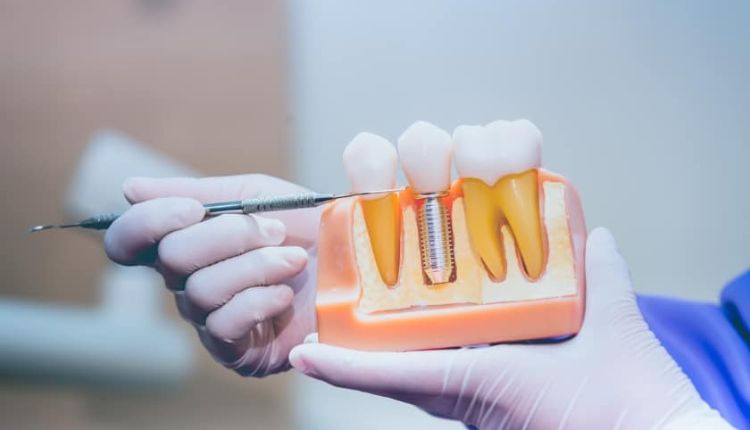Dental implants have revolutionized tooth replacement by offering a reliable, long-term solution that closely mimics the function and appearance of natural teeth. Unlike dentures or bridges that rest atop the gums or rely on adjacent teeth, dental implants involve surgically inserting a titanium post into the jawbone, serving as a substitute tooth root. A connector called an abutment and a custom-made dental crown complete the restoration for a natural look and feel.
Exploring dental implant services in Lewis Center is an excellent place to start if you are missing one or more teeth and seeking a solution that restores confidence and oral function. These services provide individualized treatment plans and advanced technology to maximize comfort and long-lasting results.
Who Is a Candidate for Dental Implants?
Deciding if dental implants are suitable for you depends on several factors. Ideal candidates should have healthy gums and sufficient jawbone density to support the implant. Those considering implants should be free of uncontrolled chronic diseases like diabetes, avoid tobacco use, and have good oral hygiene habits. It’s also important to consider age and overall well-being—implants are typically not recommended for children or adolescents whose jaws are still developing.
Ask your provider about bone quality, the need for bone grafts, and any personal health issues that could impact your healing process. This initial assessment helps ensure treatment success and minimizes risks.
Another important aspect is finding a reputable clinic with experienced professionals. North Orange Family Dentistry is a trusted provider in the region, known for personalized care and state-of-the-art dental solutions. They are a strong choice for those seeking expert guidance in dental implant therapy.
Essential Questions to Ask Your Dentist
Open communication with your dental specialist is vital. Ask questions to assess your readiness and determine if dental implants are the best solution for you, such as:
- Based on my oral health and medical history, am I a good candidate for implants?
- What experience do you have with dental implant placements?
- What are the specific risks in my situation?
- Are there alternatives I should consider?
- How will the treatment plan be tailored to my unique circumstances?
Inquiring about credentials and reviewing before-and-after photos or patient testimonials can also help you feel more confident moving forward.
Comparing Dental Implants with Alternative Solutions
Understanding how dental implants compare to bridges, dentures, and partials ensures you choose the best route for your needs. Fixed bridges rely on adjacent teeth for support, which can compromise healthy teeth, while removable dentures may be less stable and require periodic adjustments. Dental implants stand out by preserving jawbone integrity and function over the long term.
Each tooth replacement option has pros and cons regarding durability, comfort, ease of maintenance, and cost. For a comprehensive look at tooth loss and its solutions, refer to the CDC’s information on tooth loss and replacement.
Understanding the Costs and Insurance Coverage
One of the top concerns about dental implants is their cost, which can be higher than that of other tooth replacement options. Factors influencing price include the number of implants, need for bone grafting, complexity of your case, and geographic location. While many dental insurance plans offer partial coverage for restorative procedures, they may not cover implant placement, so clarifying your benefits beforehand is essential.
Flexible payment plans and third-party financing options are available at many dental practices, helping make dental implants more accessible. Ensure a detailed estimate and discuss potential out-of-pocket costs during your consultation.
Risks, Benefits, and Long-Term Results
Dental implants offer substantial benefits, including improved chewing ability, speech, confidence, and preservation of jawbone structure. According to the American Dental Association, implants boast a high success rate—typically around 95%—but like any surgical procedure, complications such as infection, implant failure, and nerve injury can occur.
Long-term results depend on proper daily care: regular brushing, flossing, and professional checkups are essential to maintaining implant health. Lifestyle factors, such as avoiding smoking and maintaining systemic health, greatly influence implant longevity. Reliable resources such as Mayo Clinic’s guide to dental implant surgery can offer further insights into risks and expectations.
What to Expect During and After the Procedure
The dental implant process unfolds in several steps. It typically starts with a comprehensive evaluation, followed by precise implant placement under local anesthesia. Over several months, the implant bonds with the jawbone in a process called osseointegration. After healing, an abutment and custom crown are attached.
Recovery can vary between individuals but generally includes mild discomfort, swelling, or bruising for the first few days. Healing times depend on bone quality, the extent of surgery, and your overall health. Adhering to aftercare instructions from your dental team enhances comfort and ensures optimal results.
Tips for Choosing the Right Dental Professional
Choosing the right dental provider is crucial for a successful implant experience. Look for qualities such as extensive experience, advanced training in implantology, transparent communication, and positive patient reviews. Board-certified specialists and modern facilities also indicate a high standard of care.
During your consultation, ask about success rates, available technologies, and aftercare support. A reputable provider should be open to discussing all your concerns and providing detailed explanations of the process.
Dental implants are a significant investment in oral health and quality of life. By understanding your options, communicating with skilled professionals, and prioritizing your well-being, you can confidently decide if dental implants are the right solution for you.






